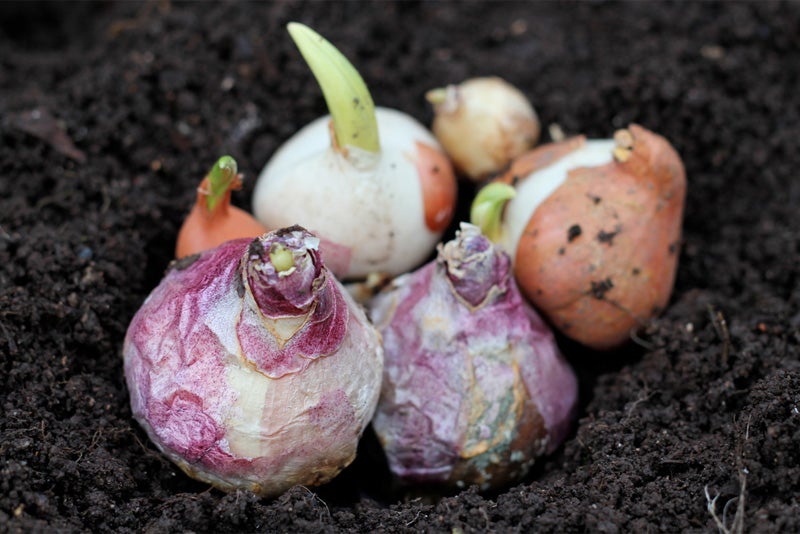Get rid of snow and ice without harsh chemicals
ListenMike explains that ornamental peppers ARE edible, how to care for your succulents indoors for the winter, how to get the last of your spring bulbs in the ground, the most permanent way to get rid of grubs and how to get rid of snow and ice without harsh chemicals. Plus; Mike speaks with Marine veterans, Dennis Riling and Josh Brown, who found their calling in organic farming. See below, under ‘special guests’, for details.
Question of the Week:
“I have a stamped concrete walkway surrounded by a lot of mature foundation plants. The little research I’ve read suggests that I should not use magnesium chloride, calcium chloride or potassium chloride because it degrades cement. Can you suggest another alternative? Play sand? Kitty Litter? I don’t have access to wood ashes.”
— John in Kensington, Maryland
Organic alternatives to rock salt »
Highlights from show for December 14, 2013:
Ornamental pepper plants ARE edible!
Emily from Huntington Valley, Pennsylvania has an ornamental pepper plant that was flourishing outdoors, but is not faring well now that she’s brought it inside. The plant was covered with healthy, colorful peppers — red, orange, purple. Now that the plant is inside, its leaves and remaining peppers are shriveling. She asks Mike if there is anything she can do to revive it. Mike says: “I love to remind people every couple of years that ornamental just means they look pretty. They are as edible as any other hot pepper. But because these are pepper varieties that are basically bred to have all their peppers pointing straight up and at the top of the canopy of the plant, that’s a sign that they’re going to be extremely hot.” Mike continues to explain that these plants produce a lot of peppers, but if the peppers remain on the plant, that’s a signal that the plant doesn’t need to continue flowering or producing. These plants must be harvested periodically to extend their lifespan.
“I love to remind people every couple of years that ornamental just means they look pretty. [Ornamental peppers] are as edible as any other hot pepper.”
Mike McGrath
-

Photo by Flickr user Aaron
Bring your succulents indoors for the winter
Alex from Atlanta, Georgia has succulents in pots on his outdoor patio, but now that it’s getting cold, he’s wondering whether he should leave them outside for the season or bring them indoors. Mike responds: “I think it’s a no-brainer. What you want to do is bring them inside, give them the brightest spot they can but make sure they don’t fry. You know, if you’ve got a window where the sun comes blaring in, then it would be great for them to be on that window sill with just a sheer curtain in between them and the lights — something to break the heat but let most of the light through. And have a very light hand with the water. Succulents store water very efficiently and plants don’t use a lot of water over the wintertime, generally.”
Special guests: Dennis Riling and Josh Brown
Mike McGrath speaks with two Marine veterans who found their calling in organic farming after taking the one year course at Delaware Valley College located in Doylestown, PA. The Organic Farming Program, a partnership between the College and The Rodale Institute, prepares young veterans to enter this growing field. Dennis Riling is the coordinator of the program and urges other vets to give it a chance. Josh Brown, a Marine veteran who served for eight years and was deployed twice to Afghanistan, was the first veteran to enroll in the Organic Farming Program at Delaware Valley College and completed it. He now wants to go on to work in Land Management. For more information on the program visit: www.delval.edu. And for information on programs outside the Philadelphia area, visit The Farmer Veterans’ Coalition at: www.farmvetco.org
-

Pictured: Mike McGrath and guests in studio
Spring bulb planters better hurry!
Kim from Newark, Delaware wants to know if still OK to plant spring bulbs? “If you still have spring bulbs at this time of year, the best thing to do is to just put them in the ground and hope for the best. These things are actually pretty tough, but they would have preferred to go into the ground a month or two ago. But you know, with Thanksgiving being the cut-off date, you’re not that much out of whack.” Mike warns though that squirrels love to dig up and snack on these bulbs, and he suggests, if possible, to spread dog hair near where she planted to deter these clever pests.
Have a lot of crows? You probably also have a lot of grubs.
Vincent from Wallingford, Pennsylvania has a flock of crows visiting his property every year in the fall and would like to know what he can do to keep them away as they tend to dig around in his yard. “Crows, unfortunately, as you may know or have heard, Crows are some of the most intelligent creatures we have in our environment. In terms of ability to learn — I believe they can even use tools! — they’re the smartest in the bird family. And they have a reputation for being really crafty.” Mike suspects that the crows are attracted to beetle grubs in the soil. And based on this, Mike recommends treating the soil to get rid of the grubs: “The best way to control lawn grubs long term — and fortunately you have a long time to prepare for this — there’s a natural control called milky spore disease. And what this is it’s a naturally occurring soil organism that once the grub ingests it, the grub dies and then it develops this disease and spreads this disease throughout the lawn. But it only effects beetle grubs, it doesn’t even harm earthworms.” Mike explains that milky spore disease is readily available at most garden centers in the spring season.
WHYY is your source for fact-based, in-depth journalism and information. As a nonprofit organization, we rely on financial support from readers like you. Please give today.



